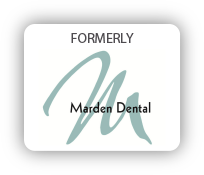Bruxism Treatment and TMJ Assessments
There are several threats to good dental health that don’t result from the oral bacteria found in plaque and tartar, and therefore, they largely cannot be prevented through routine dental cleanings. Two such issues are bruxism and TMJ disorder, which affect millions of children and adults in the United States. Bruxism is the unconscious grinding of your teeth. When left untreated, it can lead to extensive wear and damage to your teeth. TMJ disorder (temporomandibular joint disorder) is a dysfunction in one or both of the joints of your jaw.
Stop Bruxism from Destroying Your Teeth
For many patients with bruxism, nighttime is often the most active time for teeth-grinding. If you experience bruxism, then Dr. Johnson-G’Sell can prescribe a custom-made mouthguard to protect your teeth from grinding while you sleep. Treatment might also include one or more restorations to repair any damage that your teeth have already sustained.
Relieve Chronic Jaw Pain, Headaches, and More
TMJ disorder is often closely related to bruxism, but even patients who don’t grind their teeth can experience the discomfort of damaged or inflamed jaw joints. Chronic headaches, pain and soreness in your facial muscles, and difficulty biting and chewing can also be signs of TMJ disorder. During your visit, Dr. Johnson-G’Sell can perform a TMJ assessment to determine if TMJ disorder is the cause of your chronic discomfort. If so, then she can refer you to a trusted oral/maxillofacial specialist so you can receive the best treatment to restore the function of your bite.


